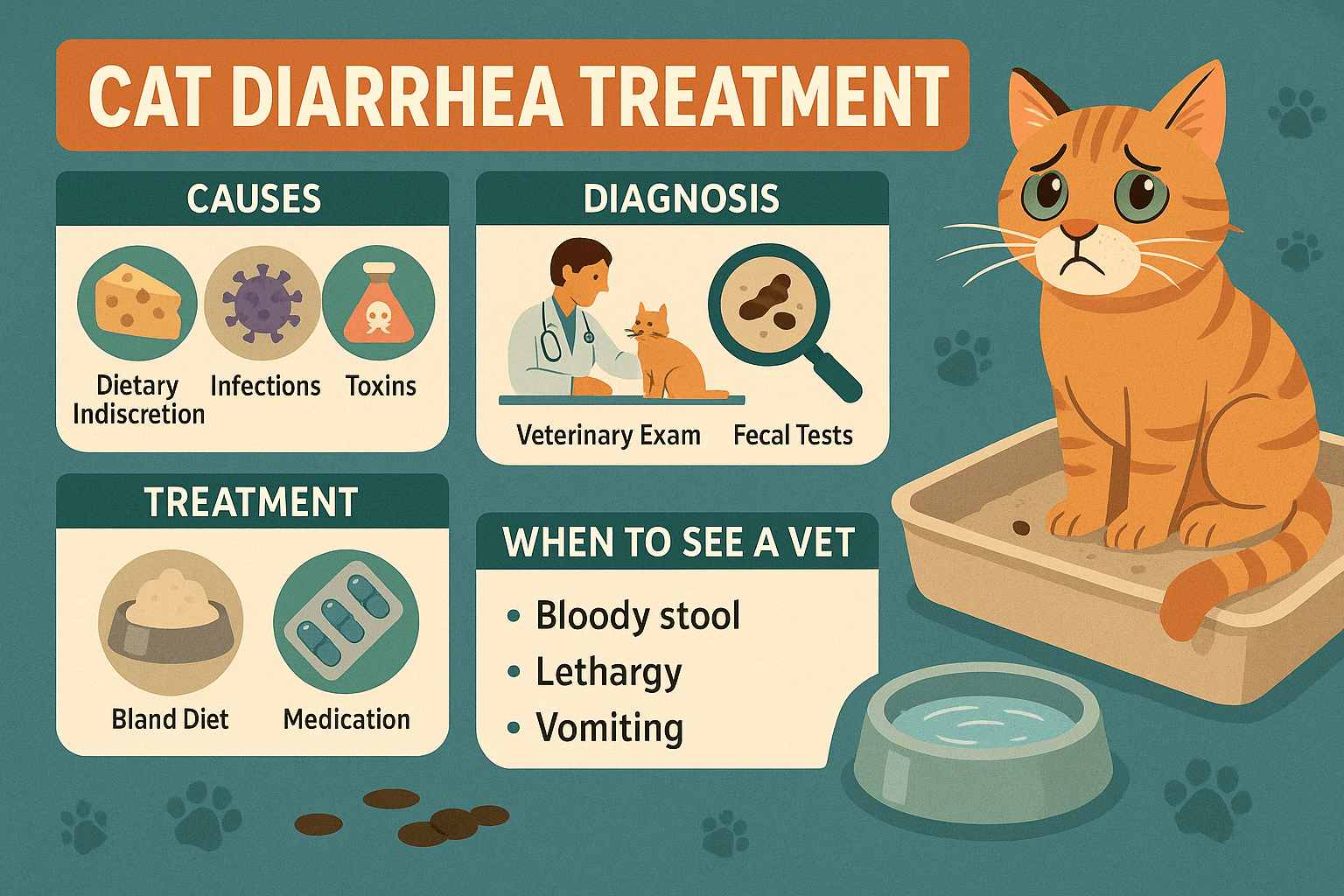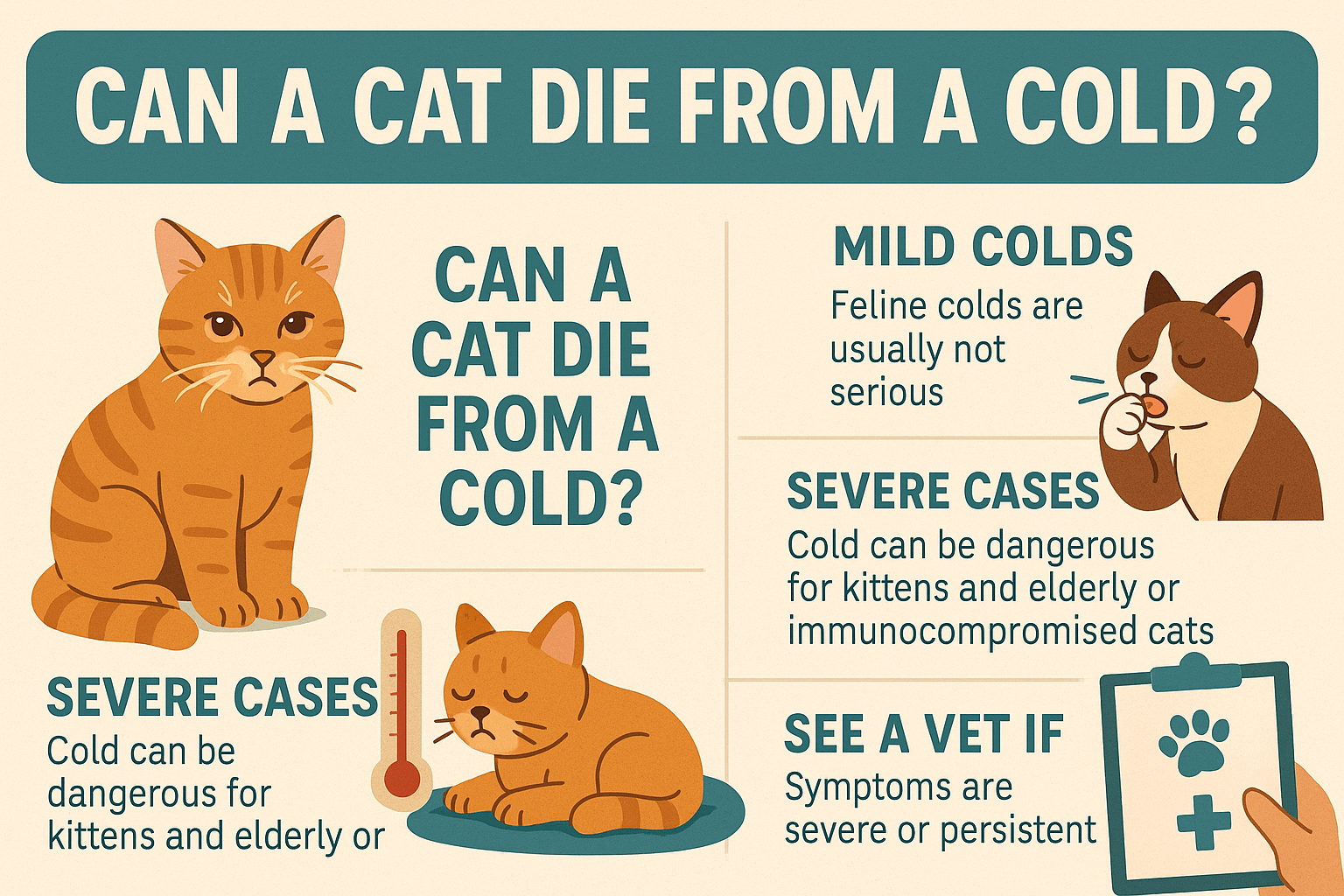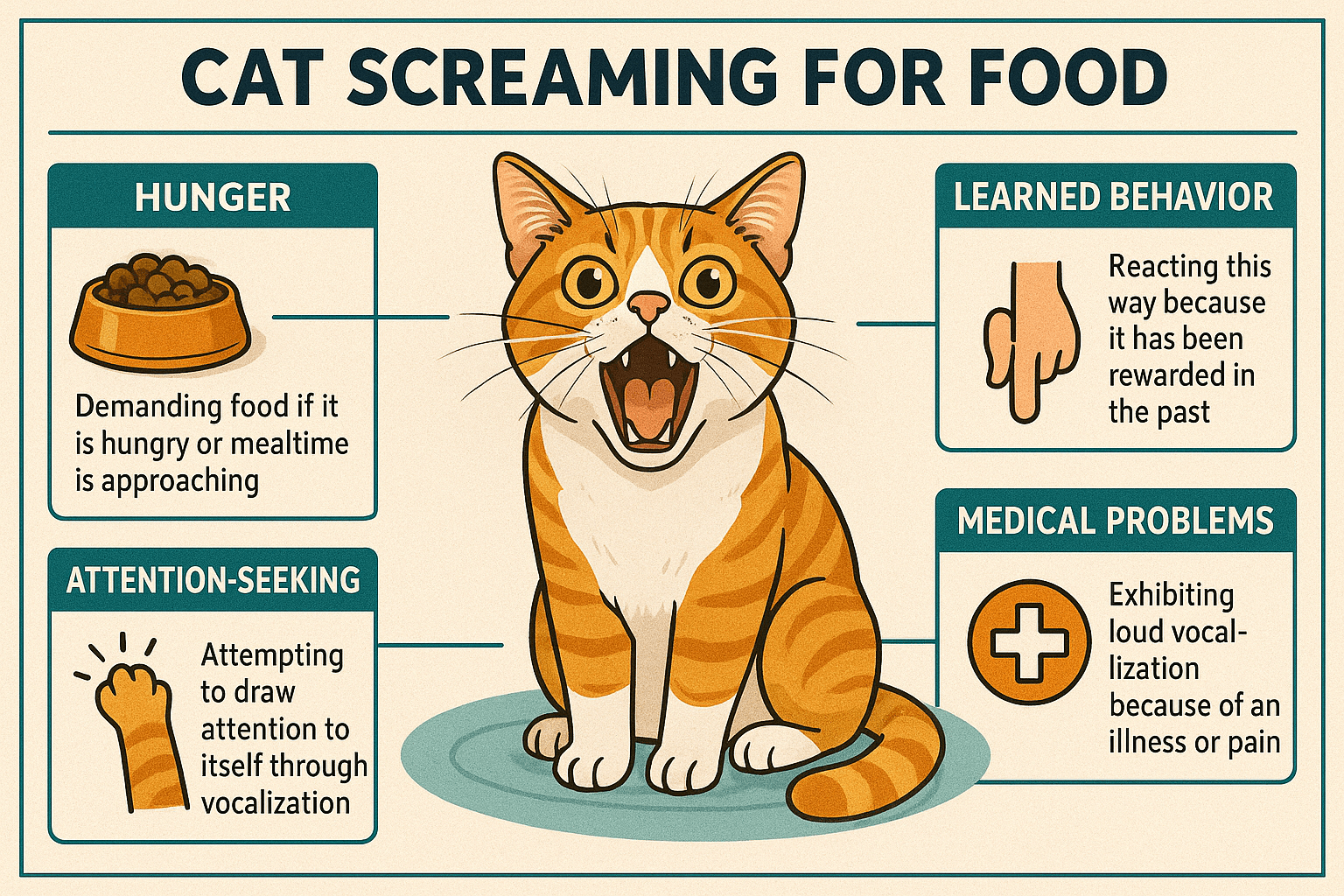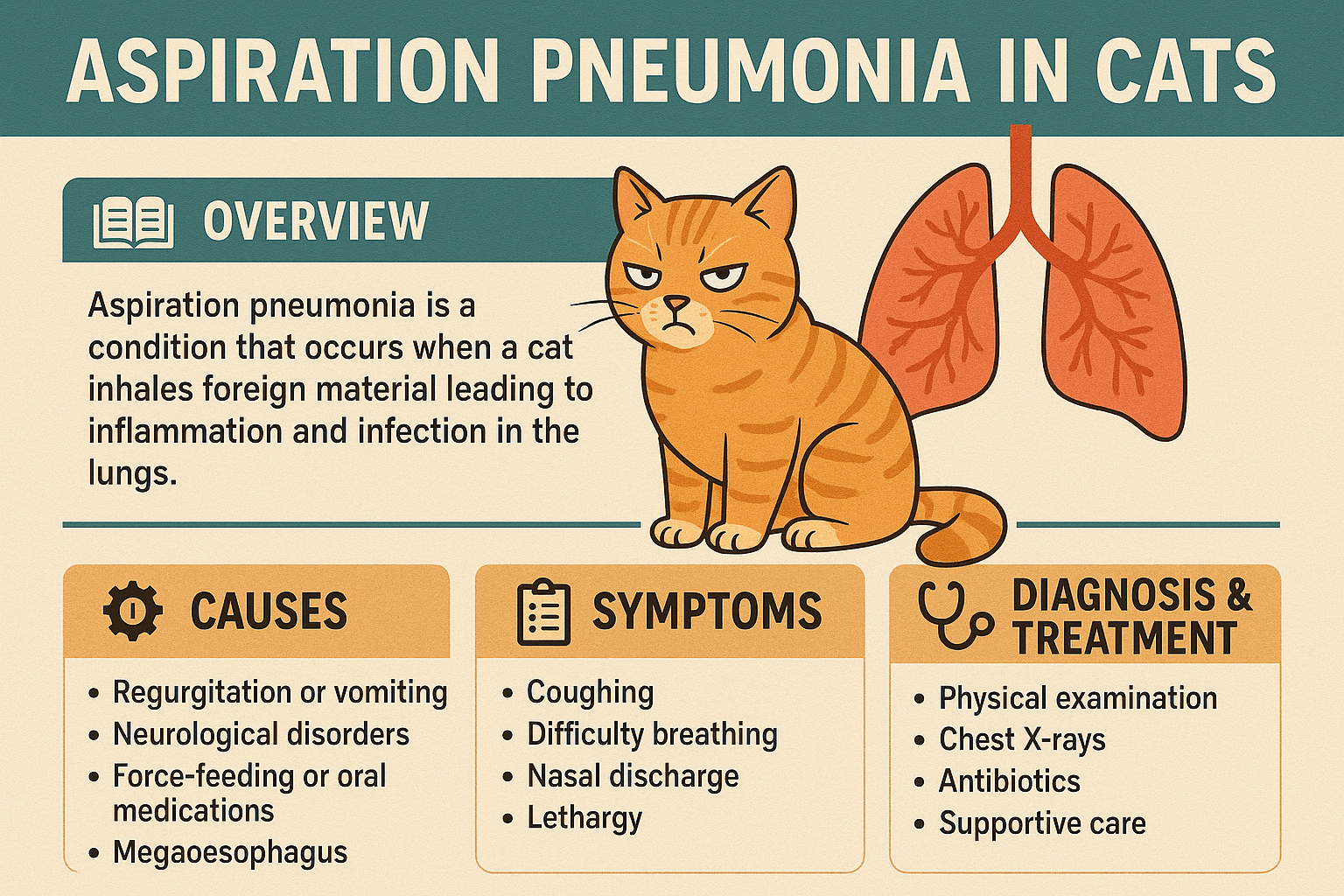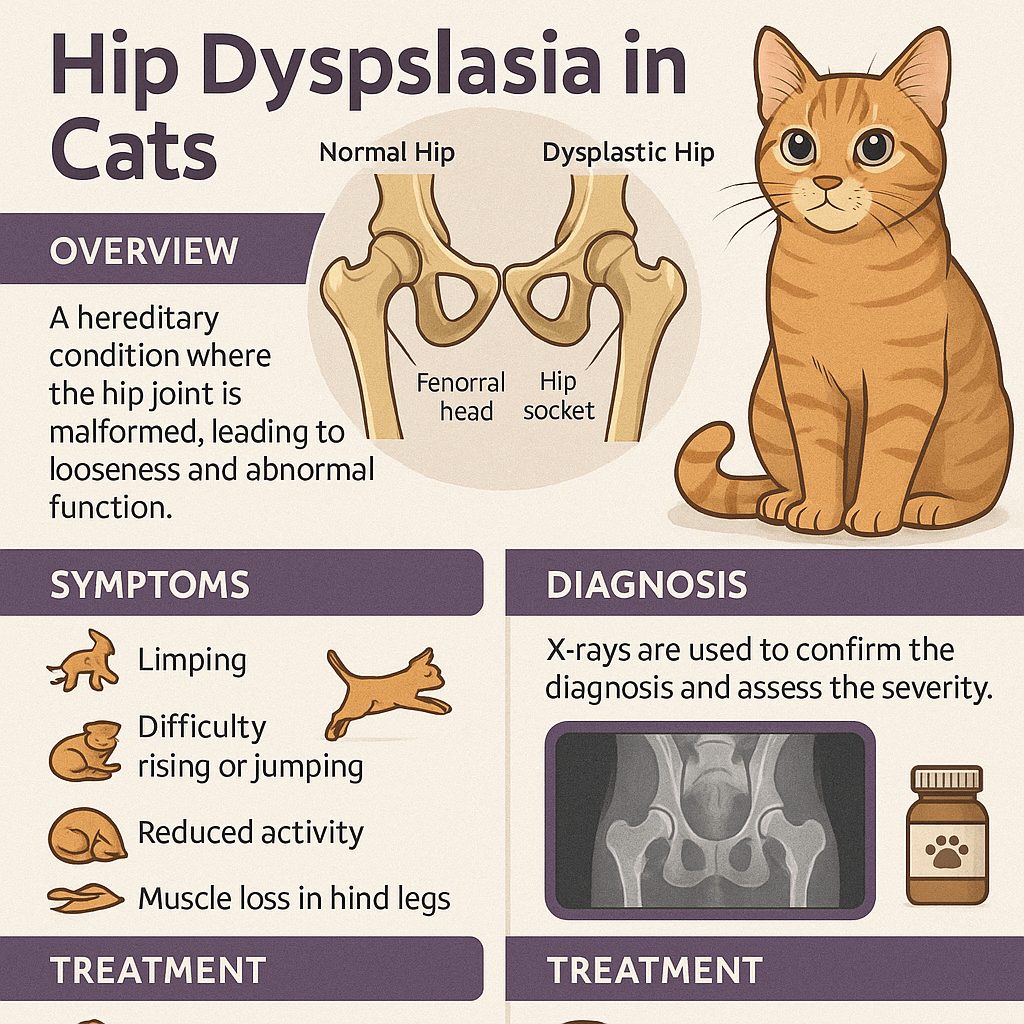Cat Diarrhea Treatment: What You Need to Know
Diarrhea in cats can be a distressing issue for both pets and their owners. While occasional loose stools may not always indicate a serious problem, persistent or severe diarrhea requires prompt attention to prevent dehydration and identify underlying causes. Understanding how to treat cat diarrhea effectively involves recognizing symptoms, addressing potential triggers, and providing proper care. Whether your feline friend is experiencing mild digestive upset or something more concerning, this guide will equip you with the knowledge to help them recover quickly and comfortably.
Expert Insight: Simplifying Your Cat’s Diet
“However, it’s best to simplify your cat’s diet. Don’t feed them any treats or table scraps and focus only on the core, nutritionally-complete cat food that you offer every day.”
Common Causes of Cat Diarrhea
Identifying the root cause of your cat’s diarrhea is the first step toward effective treatment. Here are some common factors that may contribute to digestive issues in cats.
Dietary Changes:
Sudden shifts in food, such as switching brands or introducing new ingredients, can upset your cat’s sensitive stomach.Food Intolerances or Allergies:
Some cats are allergic to specific proteins or grains, leading to gastrointestinal distress after eating certain foods.Parasites:
Internal parasites like worms or giardia can irritate the digestive tract, causing diarrhea as a primary symptom.Infections:
Bacterial, viral, or fungal infections can disrupt normal digestion and lead to loose stools.Stress or Anxiety:
Changes in routine, new environments, or loud noises can trigger stress-related diarrhea in sensitive cats.
Understanding these causes helps you narrow down potential triggers and take appropriate action to address your cat’s condition.
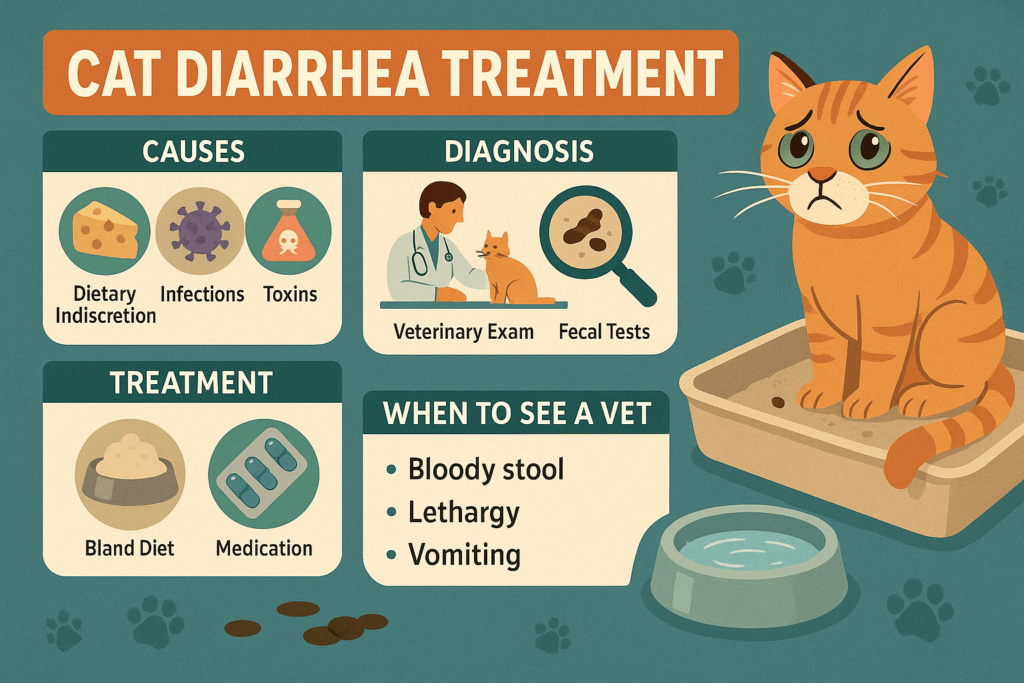
Immediate Steps to Treat Mild Cat Diarrhea
For mild cases of diarrhea, there are several steps you can take at home to help your cat recover. These measures focus on hydration, dietary adjustments, and monitoring their condition closely.
Provide Fresh Water:
Ensure your cat has constant access to clean water to prevent dehydration caused by fluid loss.Offer a Bland Diet:
Feed small portions of boiled chicken (without seasoning) and plain white rice to ease their digestive system.Limit Treats and Table Scraps:
Avoid giving your cat any snacks or human food during recovery, as these can worsen symptoms.Monitor Stool Consistency:
Keep track of your cat’s bowel movements to determine if the diarrhea improves or persists over time.Create a Calm Environment:
Reduce stressors in your cat’s environment to help their body heal naturally without additional strain.
By following these steps, you can often resolve mild diarrhea within a day or two while keeping your cat comfortable.
Check this guide 👉What Are the Common Causes of Cat Diarrhea? Best 7 Tips!
Check this guide 👉Can You Flush Cat Poop? Best 7 Expert Tips!
Check this guide 👉Understanding Cat Chronic Diarrhea: Best 7 Health Tips!
Home Remedies for Cat Diarrhea | When to See a Veterinarian |
|---|---|
Offer a bland diet | Diarrhea lasts more than 2 days |
Ensure proper hydration | Blood or mucus in stool |
Use probiotics for gut health | Vomiting accompanies diarrhea |
Limit stress and anxiety | Lethargy or loss of appetite |
Gradually reintroduce regular food | Signs of pain or discomfort |
How to Prevent Future Episodes of Diarrhea
Prevention is key to minimizing the risk of recurring diarrhea in your cat. Implementing these strategies can promote long-term digestive health and reduce the likelihood of future flare-ups.
Maintain a Consistent Diet:
Avoid abrupt changes in your cat’s food and introduce new items gradually over 7-10 days.Choose High-Quality Food:
Opt for premium cat food that meets nutritional standards and avoids artificial additives or fillers.Schedule Regular Vet Check-Ups:
Routine exams help detect underlying health issues before they escalate into problems like diarrhea.Keep Parasites Under Control:
Use preventive treatments for fleas, ticks, and intestinal parasites as recommended by your veterinarian.Minimize Stressful Situations:
Provide a stable environment with familiar routines to reduce anxiety-related digestive issues.
Taking proactive steps ensures your cat stays healthy and happy, minimizing the chances of encountering diarrhea again.
Signs That Your Cat Needs Veterinary Attention
While many cases of diarrhea resolve with simple interventions, some situations require immediate veterinary care. Recognizing these warning signs ensures your cat receives timely treatment.
Persistent Diarrhea:
If loose stools continue for more than 48 hours, it’s time to consult a vet for further evaluation.Blood or Mucus in Stool:
The presence of blood or excessive mucus indicates a potentially serious issue requiring professional diagnosis.Dehydration Symptoms:
Look for sunken eyes, dry gums, or lethargy, which suggest your cat isn’t retaining enough fluids.Loss of Appetite:
Refusal to eat or drink for an extended period can exacerbate dehydration and signal an underlying illness.Behavioral Changes:
Unusual hiding, aggression, or vocalization may point to significant discomfort or pain.
Being vigilant about these signs allows you to seek help promptly and safeguard your cat’s well-being.
Dietary Adjustments for Cats Prone to Diarrhea
If your cat frequently experiences digestive issues, making targeted dietary adjustments can make a significant difference. These changes aim to stabilize their gut health and reduce the frequency of diarrhea episodes.
Switch to Hypoallergenic Food:
Hypoallergenic diets eliminate common allergens and reduce the risk of adverse reactions.Incorporate Fiber-Rich Ingredients:
Adding fiber from sources like pumpkin can regulate bowel movements and improve stool consistency.Avoid Dairy Products:
Many cats are lactose intolerant, so removing milk and cheese from their diet prevents unnecessary irritation.Introduce Probiotics Gradually:
Probiotic supplements can enhance gut flora but should be introduced slowly to avoid overwhelming the system.Monitor Portion Sizes:
Overfeeding can overwhelm your cat’s digestive capacity, so stick to recommended serving sizes.
Thoughtful dietary planning plays a crucial role in managing chronic diarrhea and promoting overall wellness.
Natural Remedies for Cat Diarrhea
In addition to conventional treatments, natural remedies can complement your efforts to alleviate your cat’s diarrhea. These options focus on gentle, holistic approaches to restoring digestive balance.
Pumpkin Puree:
Plain canned pumpkin aids digestion by adding soluble fiber and soothing the stomach lining.Bone Broth Hydration:
Warm bone broth provides electrolytes and encourages hydration without irritating the gut.Chamomile Tea (Cooled):
Chamomile has calming properties that can ease inflammation in the digestive tract.Slippery Elm Powder:
This herb forms a protective layer in the intestines, reducing irritation and promoting healing.Coconut Oil (In Moderation):
Coconut oil contains medium-chain fatty acids that support gut health and fight harmful bacteria.
Natural remedies offer safe alternatives for mild cases but should always be used under veterinary guidance.
Creating a Stress-Free Environment for Cats
Stress is a common contributor to diarrhea in cats, making environmental enrichment essential for prevention and recovery. A calm, supportive setting helps your cat feel secure and minimizes digestive disruptions.
Provide Safe Spaces:
Designate quiet areas where your cat can retreat when feeling overwhelmed or anxious.Stick to a Routine:
Maintain consistent feeding, playtime, and sleep schedules to create predictability and stability.Use Calming Products:
Diffusers or sprays containing feline pheromones can help reduce anxiety and promote relaxation.Engage in Playtime:
Interactive toys and activities distract from stressors and encourage positive mental stimulation.Limit Household Noise:
Minimize loud sounds or sudden disturbances that might startle or unsettle your cat.
A peaceful environment supports emotional well-being and indirectly fosters better digestive health.
Frequently Asked Questions About Cat Diarrhea Treatment
What should I do if my cat has diarrhea?
Start by offering fresh water, feeding a bland diet, and monitoring their condition. Seek vet advice if symptoms persist.
Can probiotics help with cat diarrhea?
Yes, probiotics can support gut health and restore balance to your cat’s digestive system.
Is it safe to give my cat over-the-counter medications?
No, never administer human medications without consulting a veterinarian, as they can be toxic to cats.
How long does cat diarrhea usually last?
Mild cases typically resolve within 1-2 days. Prolonged diarrhea requires medical attention.
Why does my cat get diarrhea after eating treats?
Certain treats may contain ingredients that irritate your cat’s stomach or trigger allergies.
Supporting Your Cat Through Digestive Challenges
Treating cat diarrhea requires patience, observation, and a willingness to adapt your approach based on your pet’s needs. By understanding the causes, implementing preventive measures, and knowing when to seek professional help, you can ensure your feline companion recovers swiftly and remains in optimal health. Remember, a happy cat starts with a healthy digestive system—so prioritize their well-being through attentive care and thoughtful nutrition.
Can a Cat Die from a Cold? Best 7 Expert Tips! Learn how to identify, treat, and prevent feline colds while understanding when to seek veterinary care for your cat’s health.
Cat Screaming for Food: Best 7 Expert Tips! Discover effective strategies to manage your cat's food-related vocalizations and create a peaceful feeding routine.
Aspiration Pneumonia in Cats: Best 7 Expert Tips! Discover causes, symptoms, and treatment advice to protect your cat’s respiratory health and ensure a speedy recovery.
Hip Dysplasia in Cats: Best 7 Expert Tips! Discover expert advice on managing hip dysplasia in cats, from symptoms and prevention to treatment options for a happier, healthier feline life.

